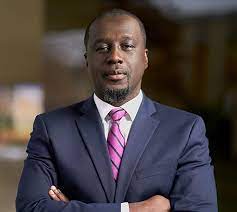As the labour force in the Western world experiences a decline, primarily due to a decreasing birthrate and the impact of COVID-19, countries have been forced to reconsider their stance on importing foreign workers.
Africa, particularly English-speaking countries like Ghana, has emerged as a hotspot for Western recruiters seeking professionals in various fields, notably healthcare. Although efforts to prevent this brain drain have been largely ineffective, there is an opportunity for African governments to turn labour export into a beneficial arrangement for both their citizens and their economies.
Creating a Streamlined Process:
African governments can collaborate with organisations specialized in labour export, such as Aspire Skills Hub, to develop a streamlined process for leasing skilled workers to organizations overseas. By granting authority and oversight to such entities, governments can ensure a regulated and controlled flow of labour, which benefits both the workers and the recipient countries.
As part of this process, governments can charge a fee for each worker released, there can also be a yearly tax on the absorbing facility through the agent the government decides to work with, providing a direct source of revenue to support training and development programs in sectors with high demand. How much can the government raise from just surcharging 5000 people $1000 each per year for three years? What can’t we do with that amount?
Expanding Beyond Healthcare:
While the healthcare sector has been the primary focus of labour export from Africa, there are numerous other industries facing labour shortages worldwide. By extending the labour export programme to encompass diverse skilled sectors, such as information technology, engineering, and construction, African governments can tap into a wider range of opportunities.
Countries like the United States, Canada, Japan, and Australia, among others, are in need of skilled workers, and Africa possesses a surplus of talent. By taking advantage of this shortage, African nations can address their own unemployment challenges while boosting their economies.
Mitigating Brain Drain:
Instead of adopting an unyielding stance of preventing their citizens from leaving, governments should view labor export as an opportunity to obtain benefits rather than incur losses. By implementing a system that generates revenue from the leasing of skilled workers, governments can allocate these funds towards training and education initiatives.
This ensures a continuous supply of qualified professionals and prevents the complete depletion of the talent pool. By directing resources towards increasing capacity and producing more skilled individuals, African countries can address their unemployment crisis more effectively.
Conclusion:
Labour export from Africa, particularly Ghana, has become a significant trend for Western recruiters. African governments can seize this opportunity by establishing partnerships with reputable labour export organizations, implementing a regulated process, and charging fees that can support training initiatives.
By expanding the labour export programme to various skilled sectors, African nations can address unemployment challenges and boost their economies simultaneously. Viewing labour export as an avenue for mutual benefit rather than as an undesirable brain drain will enable African governments to make significant strides in tackling the unemployment problem they face.
I am using this article to invite some partnerships in this labour export space. Our organization has been recruiting from Africa for almost a decade. We can work on win, win agreements with different governments and organizations!
Latest Stories
-
Defence Minister commends Ghana Armed Forces personnel during extensive Garrison visit
16 minutes -
Ghana Armed Forces set to recruit 12,000 as Defence Minister pledges transparency
41 minutes -
I was raised to sit at the table of power – NAPO opens up on leadership destiny
1 hour -
I was raised to serve – NAPO shares deep-rooted calling to public duty
2 hours -
Trump orders officials to ‘produce’ more Epstein documents after mounting pressure
2 hours -
Germany’s Merz tells BBC Europe was free-riding on US
3 hours -
Trump loyalist Katie Miller crosses battle lines to continue work for Elon Musk
3 hours -
World’s oldest climate fund targets wildlife bonds for every country in Africa
3 hours -
France ends permanent troop presence in Senegal
3 hours -
IT Engineer returns from abroad and surrenders to authorities after OSP wanted notice
3 hours -
Ex-NPA CEO Mustapha Hamid denies GH¢280m extortion allegations filed by OSP
4 hours -
Ultra Centre for licensing and vehicle registration now offers a premium experience to Accra residents
4 hours -
Trump reclassifies some federal workers, making them easier to fire
6 hours -
Judge rules Trump’s firing of FTC commissioner was illegal
7 hours -
Pope expresses sadness after Israeli strike on Gaza church kills three
7 hours

